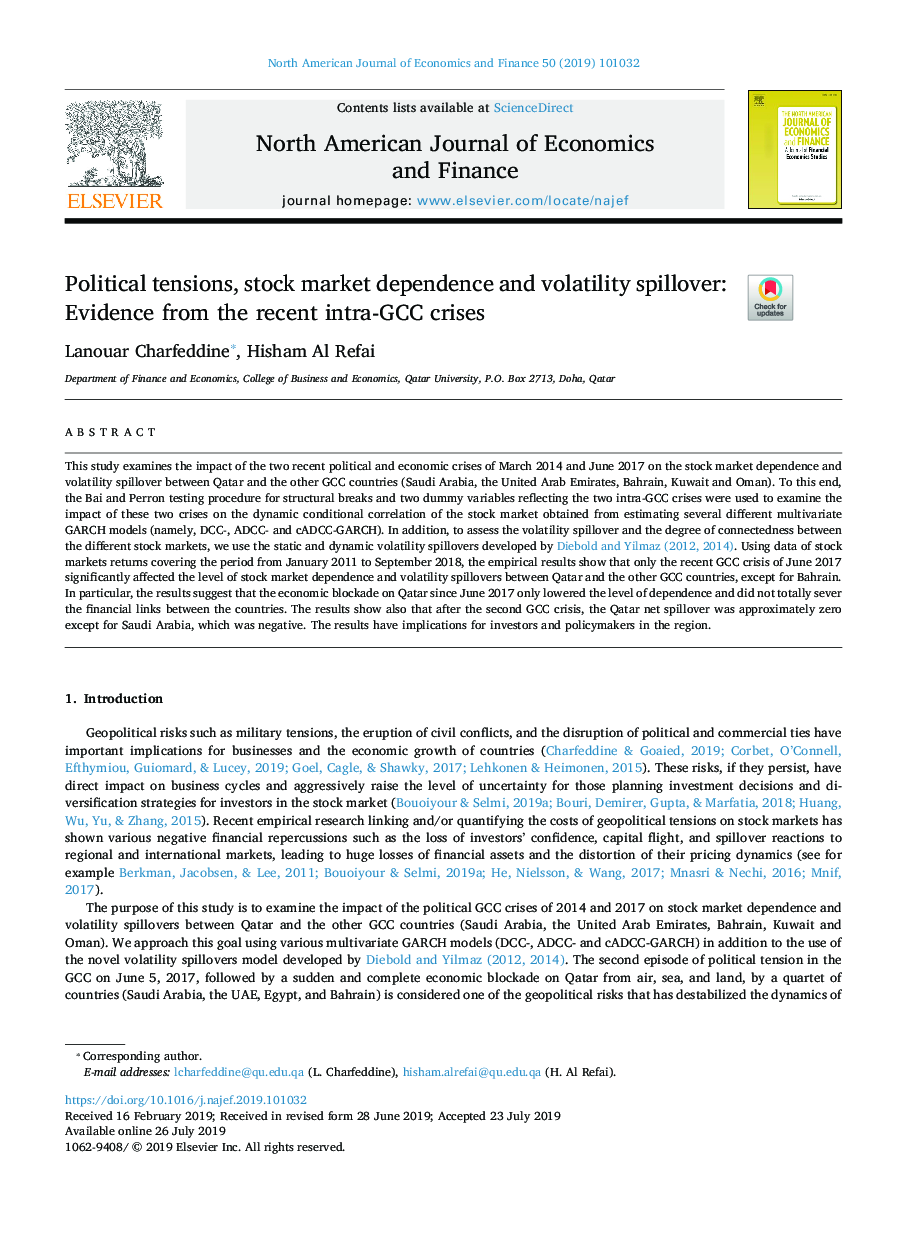| Article ID | Journal | Published Year | Pages | File Type |
|---|---|---|---|---|
| 13461398 | The North American Journal of Economics and Finance | 2019 | 20 Pages |
Abstract
This study examines the impact of the two recent political and economic crises of March 2014 and June 2017 on the stock market dependence and volatility spillover between Qatar and the other GCC countries (Saudi Arabia, the United Arab Emirates, Bahrain, Kuwait and Oman). To this end, the Bai and Perron testing procedure for structural breaks and two dummy variables reflecting the two intra-GCC crises were used to examine the impact of these two crises on the dynamic conditional correlation of the stock market obtained from estimating several different multivariate GARCH models (namely, DCC-, ADCC- and cADCC-GARCH). In addition, to assess the volatility spillover and the degree of connectedness between the different stock markets, we use the static and dynamic volatility spillovers developed by Diebold and Yilmaz, 2012, Diebold and Yilmaz, 2014. Using data of stock markets returns covering the period from January 2011 to September 2018, the empirical results show that only the recent GCC crisis of June 2017 significantly affected the level of stock market dependence and volatility spillovers between Qatar and the other GCC countries, except for Bahrain. In particular, the results suggest that the economic blockade on Qatar since June 2017 only lowered the level of dependence and did not totally sever the financial links between the countries. The results show also that after the second GCC crisis, the Qatar net spillover was approximately zero except for Saudi Arabia, which was negative. The results have implications for investors and policymakers in the region.
Related Topics
Social Sciences and Humanities
Economics, Econometrics and Finance
Economics and Econometrics
Authors
Lanouar Charfeddine, Hisham Al Refai,
